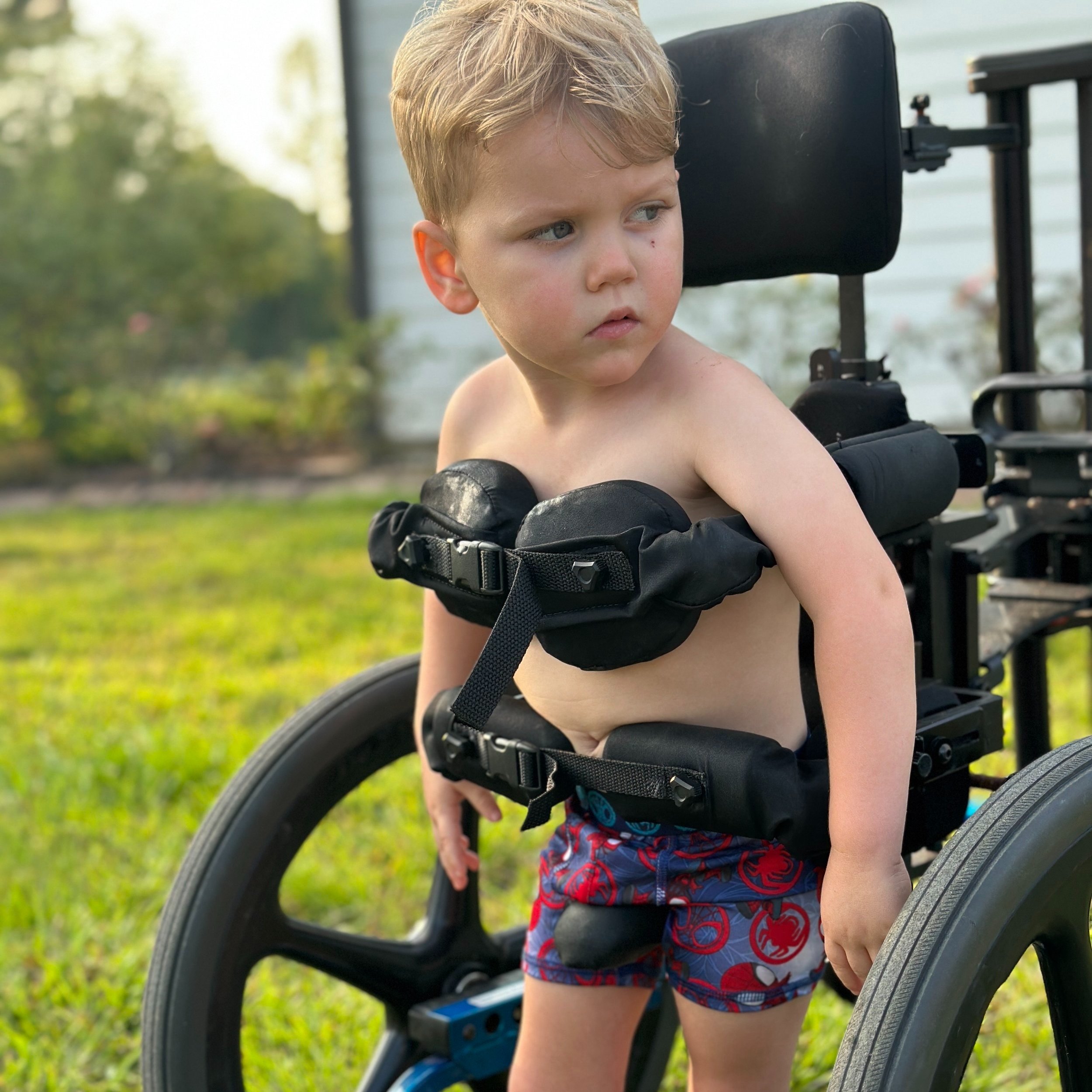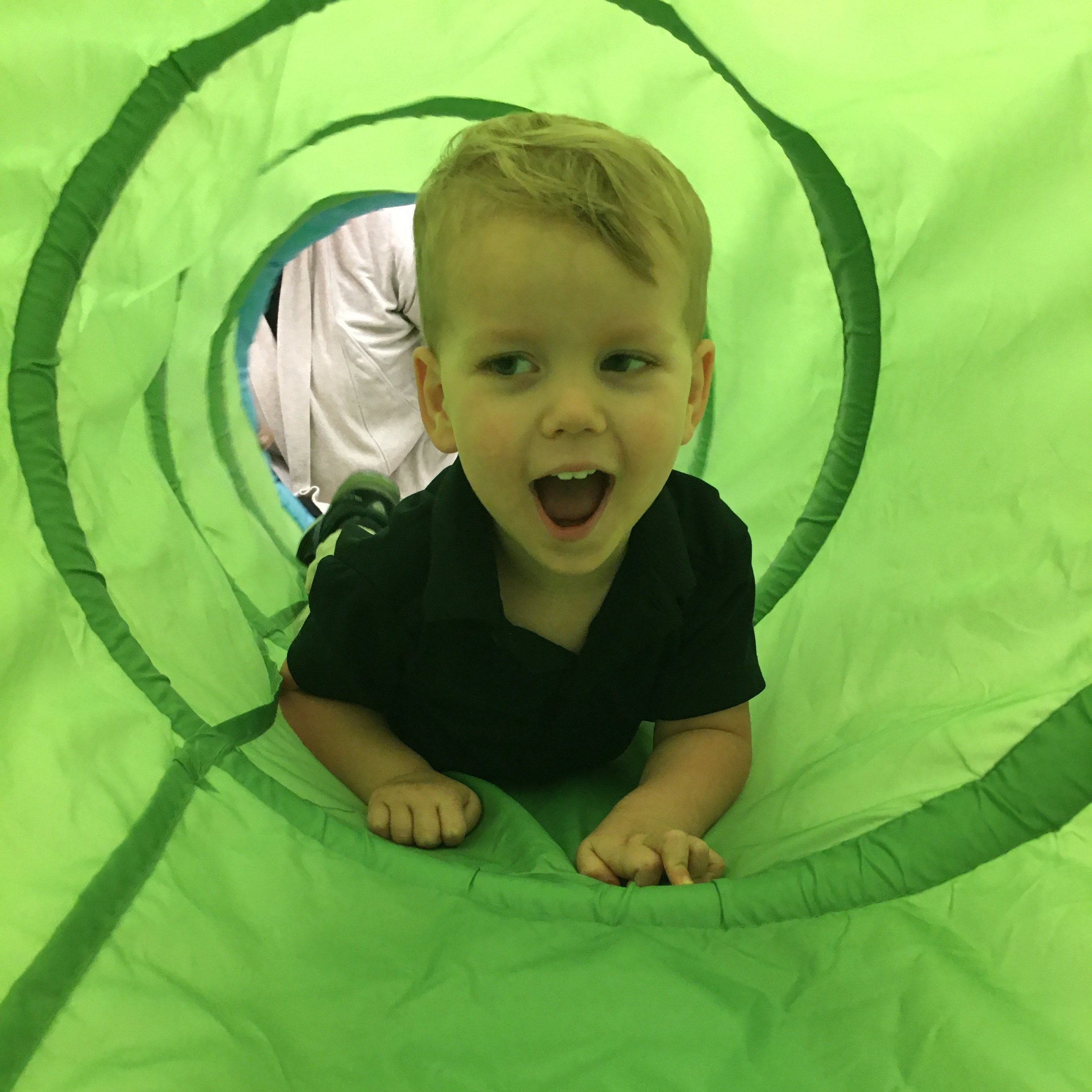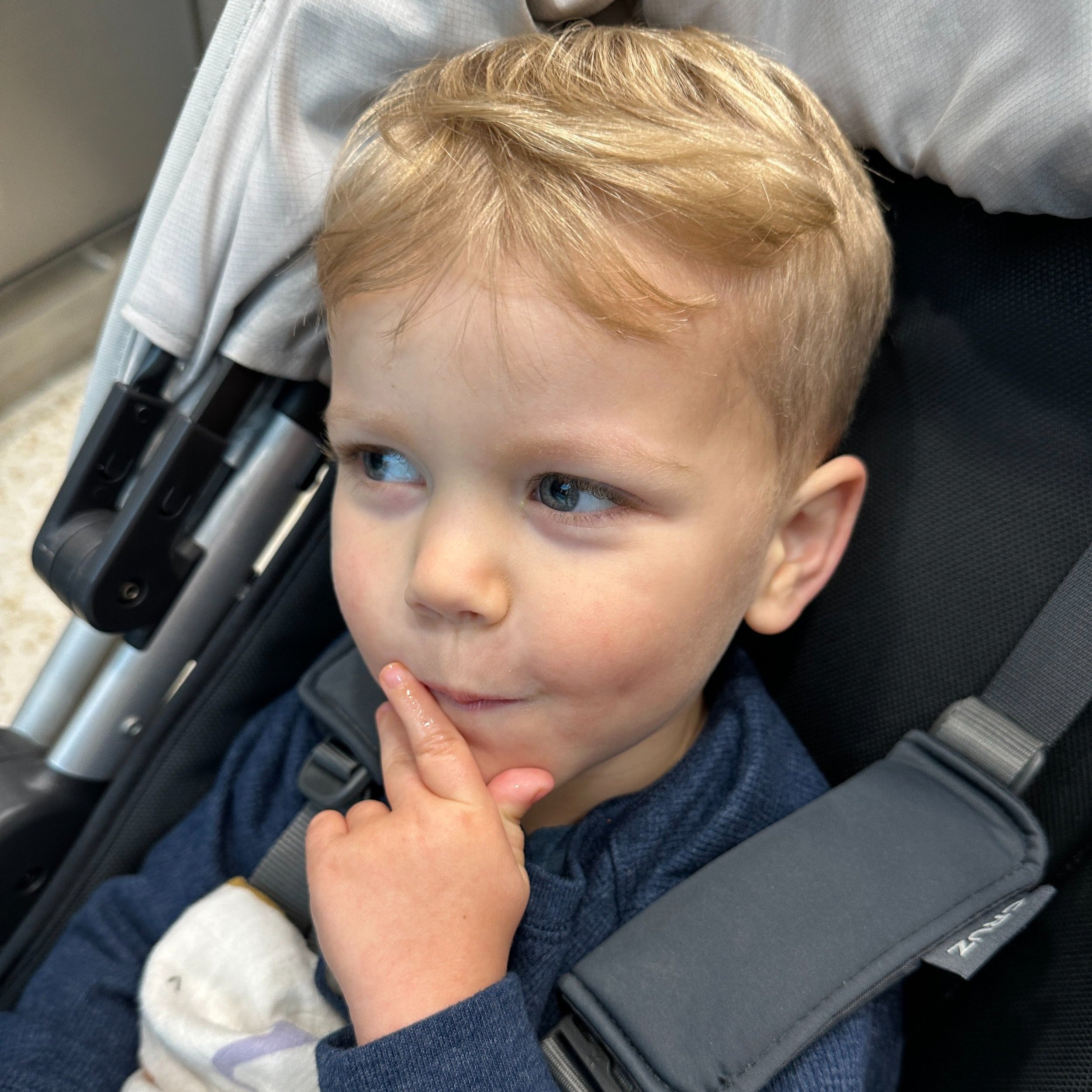Brant Dunham, Family Story
Hi, My name is Angi and I am mom to my son, Brant, now four years old, who is the center of my universe. He is fiercely loved by my husband and I, his older sisters, and everyone who is uniquely blessed to know him. He is a sufferer of Pelizaeus-Merzbacher Disease. The day of our son’s diagnosis at thirteen months of age was the hardest day of our lives. That day, we were informed that our beautiful baby boy, for whom we had so many hopes and dreams, would likely never walk, or talk. We were told that his condition was incurable, and that it would require constant care, management, and therapy if he was to have any true quality of life. The outlook was grim. We were told that our baby boy, whose life had only just begun, would, in all likelihood, perish in the first decade of his life.
Though our son was still alive, and though we knew that we still had many precious years with him ahead of us, it still felt like a death sentence had been handed down. It felt as if his life was already over before it had even had the chance to begin. Yes, we had time, but not enough time and he would never live anything that resembled a “normal” life due to no treatments being available. We grieved—for ourselves, for our family, and for him most of all, trapped unfairly in a little body that his brain simply couldn’t communicate with effectively. An innocent prisoner.
Brant is completely dependent on myself and a handful of trusted others. Every single aspect of his day-to-day existence, even the simplest task, requires attention, supervision, and assistance. Every need that he has as a human being cannot be met without my help. There is nothing that my son can do on his own. He can’t play the way that other children his age can. He can’t feed himself. He can’t move independently, even from one room to the next. He is non-verbal (though he manages to get his point across in his own unique way), basically every single day of his life is a struggle against himself.
I currently attend outpatient therapy sessions with Brant eight times a week—these include occupational, physical, and speech therapies—along with any other medical appointments he may have scheduled during any given week. We semi-annually consult with a team of specialists at the Children’s Hospital of Philadelphia and these visits conclude with a sedated procedure where he is administered Botox and Phenol injections to help with muscle spasticity. In our hometown, most of the doctors we encountered had never heard of PMD before meeting us, so we must travel to medical centers with greater expertise. When Brant was originally diagnosed the genetics doctor classified him as conatal type because she was unfamiliar with PMD and because he had symptoms at birth she considered him to be a worst case scenario, but once we were seen by the specialty team at CHOP it was described to us that the disease is more like a spectrum and they consider Brant to be somewhere in the middle.
My husband and I both work out of necessity. My husband does the bulk of Brant’s daily at-home therapy routines with him. I arrange my work schedule to accommodate Brant’s very full therapy schedule. Brant’s condition requires a great deal of patience, along with consistent, near-constant management. Because of the degenerative nature of PMD, any negligence, however slight, on our part would likely result in the worsening of Brant’s symptoms. PMD does not stop, and it does not take breaks. Therefore, neither can we.
The outpouring of love we and Brant receive from our friends and family is truly miraculous. My husband and I’s parents have given a great deal of their personal time in order to be there for us so that Brandon and I can prioritize our son and devote our focus and attention to his care.
We always have, and always will, see Brant as a blessing. I have never questioned, not even for a moment, if my life is better because I get to share it with him. I know that it is, but the emotional, financial, and physical toll of his illness on our family cannot be exaggerated. Brant’s motor control and fine motor skills prevent him from walking and developing physically as a typical 4 year old would. His fine motor skills make it difficult to use many communication devices to communicate to others as well.
The outlook, according to every expert and every text on the subject, is bleak. They say that my son--who is so full of life, who charms everyone he meets without saying a word, whose tireless will and unbreakable spirit battle daily, mightily, against the limitations of his body, whose personality shines through his disability, and whose smile could melt even the iciest heart—could have his life cut short if a treatment isn’t developed to stop the progression of PMD. My prayer is that a treatment will come before it’s too late and that Brant will be a candidate to receive such treatment. If a treatment was developed that would give a possibility of longevity and better quality of life we would be willing to accept all risk to give him that chance. To give our family and generations to come, hope. Thank you!





